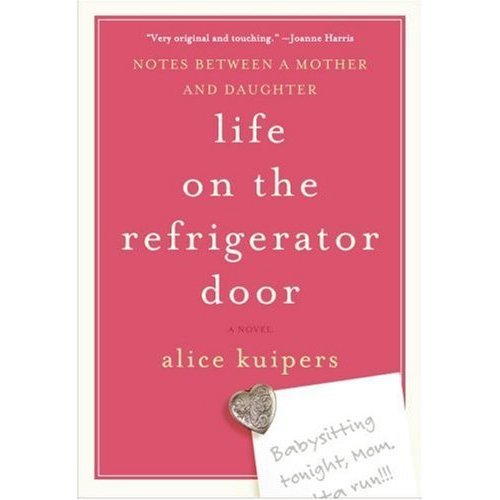(Editor’s Note: The following post originally appeared at Bufo Calvin’s
I Love My Kindle blog and is reprinted here with his permission in a generous effort to help maintain my peace of mind during what I hope will be a brief absence due to my hip replacement surgery. –S.W.)
By Bufo Calvin
I thought it might be worthwhile to break this down by state so you can have some idea what will happen before you hit that 1-click button.
It’s worth noting that I’m going by what Amazon says on their Help pages, and that the rules could change due to legislation in your state, publishers establishing a physical presence in additional states (or leaving ones), and so on.
This change has come about due to the “agency model”, in which the publishers are actually selling you the books, and Amazon (and other former retailers) are just processing the sales for them as “sales agents”.
It’s also possible that your state doesn’t charge sales tax on e-books. Different states charge sales tax for different things. The federal government regulates interstate commerce, but that’s kind of the whole thing here. If the entity selling you something (the publisher selling you the book, in this instance) has a physical presence in your state, they can be compelled to collect the sales for something sold to your state (even if the transaction mechanism is in another state…Washington, for example).
The reason I’m listing these is that you can only buy Kindle books with 1-click. That means you won’t see an indication of the sales tax until after you have made the purchase. You could contact Kindle Customer Service and “return” the book within seven days of purchase for a refund, but by having this list, you might avoid that. It’s not hard, but it does take some time and effort.
If you ever do need to contact Kindle Customer Service, you can do that starting
Last I checked, neither Barnes & Noble nor Sony allow returns for e-books. I looked at Apples iBooks store information, but didn’t see an answer to that one.
One other thing: in a lot of states the tax varies, because “integral entities” (cities, counties) may have additional sales tax. I would assume they will collect those as well, but I don’t know if the cities can compel the publishers to have Amazon collect it in the same way…Amazon lists states without sales tax as not collecting it, even though some integral entities do, so maybe not.
When you go to buy the book, it will indicate on Amazon’s product page that “This price was set by the publisher” and list the publisher right there (if it is being sold under the agency model). If it doesn’t say that, then you should expect to have sales tax collected if I list Amazon for your state below.
NOTE: YOUR ACTUAL SALES TAX RATE MAY VARY DUE TO ADDITIONAL COUNTY AND/OR CITY TAXES OR OTHER LOCAL TAXES.
Alabama (4%)
Hachette, Simon & Schuster
Alaska (0%)
No state sales tax. Amazon doesn’t indicate it will be collected for anybody. Some integral entities do collect it, though.
Arizona (5.6%: technically a “transaction privilege tax”)
Hachette, Simon & Schuster, Macmillan
Arkansas (6%)
HarperCollins, Simon & Schuster
California (8.25%)
HarperCollins, Simon & Schuster
Colorado (2.9%)
Hachette, HarperCollins, Simon & Schuster, Macmillan
Connecticut (6%)
Hachette, HarperCollins, Simon & Schuster, Macmillan
Delaware (0%)
No sales tax.
DC (6%)
Hachette, HarperCollins, Simon & Schuster, Macmillan
Florida (6%)
HarperCollins, Simon & Schuster
Georgia (4%)
HarperCollins, Simon & Schuster
Hawaii (4%…technically an excise tax)
Hachette, Simon & Schuster, Macmillan
Idaho (6%)
Hachette, HarperCollins, Simon & Schuster
Illinois (6.25%: technically a Use Tax)
HarperCollins, Simon & Schuster
Indiana (7%)
Hachette, HarperCollins, Simon & Schuster, Macmillan
Iowa (6%)
HarperCollins, Simon & Schuster
Kansas (5.3%)
HarperCollins, Simon & Schuster
Kentucky (6%)
Amazon, Hachette, HarperCollins, Simon & Schuster, Macmillan
Louisiana (4%)
Hachette, HarperCollins, Simon & Schuster
Maine (5%)
Hachette, HarperCollins, Simon & Schuster, Macmillan
Maryland (6%)
HarperCollins, Simon & Schuster
Massachusetts (6.25%)
HarperCollins, Simon & Schuster
Michigan (6%)
HarperCollins, Simon & Schuster
Minnesota (6.875%)
HarperCollins, Simon & Schuster
Mississippi (7%)
Hachette, HarperCollins, Simon & Schuster, Macmillan
Missouri (4.225%)
HarperCollins, Simon & Schuster
Montana (0%)
No sales tax.
Nebraska (5.5%)
Hachette, HarperCollins, Simon & Schuster, Macmillan
Nevada (6.85%)
Simon & Schuster
New Hampshire (0%)
No sales tax.
New Jersey (7%)
Hachette, HarperCollins, Simon & Schuster, Macmillan
New Mexico (5%: technically a gross receipts tax)
Hachette, HarperCollins, Simon & Schuster, Macmillan
New York (4%)
Amazon, HarperCollins, Simon & Schuster
North Carolina (5.75%)
Hachette, HarperCollins, Simon & Schuster, Macmillan
North Dakota (5%)
Amazon, HarperCollins, Simon & Schuster
Ohio (5.5%)
HarperCollins, Simon & Schuster
Oklahoma (4.5%)
Simon & Schuster
Oregon (0%)
No sales tax.
Pennsylvania (6%)
HarperCollins, Simon & Schuster
Rhode Island (7%)
HarperCollins, Simon & Schuster
South Carolina (6%)
HarperCollins, Simon & Schuster
South Dakota (4%)
Hachette, Simon & Schuster, Macmillan
Tennessee (7%)
Hachette, HarperCollins, Simon & Schuster, Macmillan
Texas (6.25%)
Hachette, HarperCollins, Simon & Schuster, Macmillan
Utah (4.7%)
Hachette, HarperCollins, Simon & Schuster, Macmillan
Vermont (6%)
Hachette, Simon & Schuster, Macmillan
Virginia (5%)
HarperCollins, Simon & Schuster
Washington (6.5%)
Amazon, Hachette, HarperCollins, Simon & Schuster, Macmillan
West Virginia (6%)
HarperCollins, Simon & Schuster
Wisconsin (5%)
Hachette, HarperCollins, Simon & Schuster, Macmillan
Wyoming (4%)
Hachette, Simon & Schuster, Macmillan
Remember, this is only a guideline, and could change at a later time without being reflected in this post.
One other thing: you can’t really blame the publishers for this. They don’t have any choice but to collect sales tax for those states in which they have a physical presence.
Is this bad for the e-book business? Maybe. Before the agency plan, Amazon only collected sales tax in five states. With the agency plan, Amazon has to collect sales in 45 states. That same provision doesn’t apply to paperbooks, which are not sold under the agency plan.
That means that the amount charged to your credit card may be even higher on e-books compared to p-books (paperbooks).
Let’s say I was buying a $9.99 e-book in California. I’m going to keep this simple and go with the base state tax rate of 8.25% (although it can be higher in some places. I’m now going to be charged $10.81 for the book on my credit card. The hardback is likely to be considerably more than that, but it brings it closer.
I think a segment with an even bigger problem is the $7.99 books that are the same in paper and e-books (there are other price points where that can be true as well). That makes your credit card charge about sixty-five cents higher for the e-book…that’s noticeable.
I keep saying “credit card charge” because hypothetically, you’d be paying that money on your state taxes, often as a “use tax”. That may not be true in all states, but I’m guessing most states have that declaration on your taxes.
It’s the perception of paying more that will matter. One key example: books priced at $9.99 will appear to be “over ten dollars”…does that mean all the boycotters will stop buying those $9.99 books if they are in a state where that sales tax will be collected at the time of purchase from that publisher?
It’s also going to generate a lot of Customer Service expense for Amazon, as they have to deal with all those “returns”. Amazon must hate this: they have to have the books look more expensive, they have to deal with Customer Service, and the cost of accounting must be higher.
I think Amazon may need to try to figure out a way to show the final price before the 1-click (or allow shopping without 1-click) to cut down on those expensive Customer Service interactions.
The publisher tax situation should be true at any e-book retailer, but the taxes for states in which that retailer has a physical presence would be different.
More and more interesting, hm?














 Amazon
Amazon